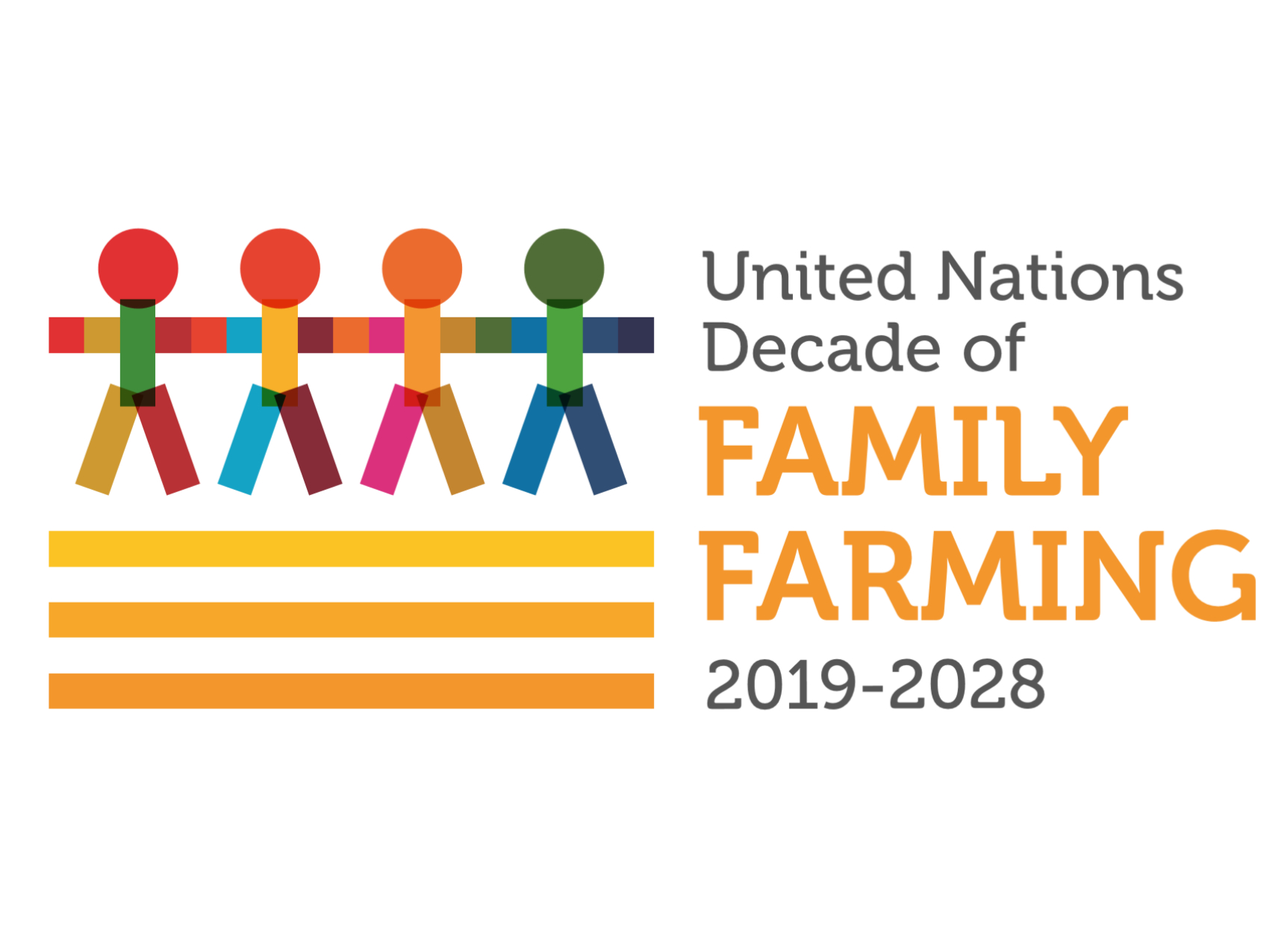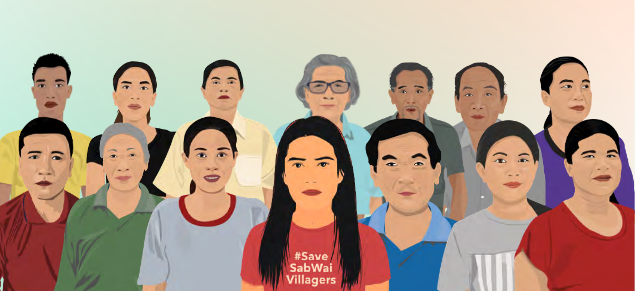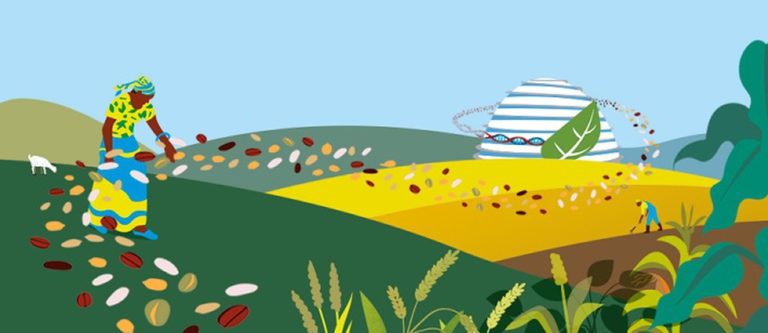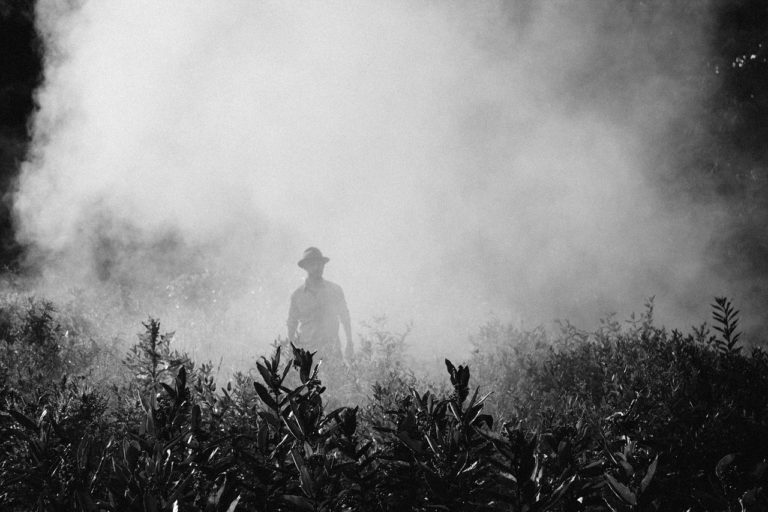United Nations sources on Peasants’ Rights (UNDROP Presentation 3/3)
In addition to international instruments, a number of other UN sources are important for peasants’ rights, including (1) the UN Decade of Family Farming (UNDFF) 2019-2028, (2) FAO instruments (6), and (3) UN Committee on World Food Security instruments.
1. UN DECADE OF FAMILY FARMING (2019-2028)
In 2017, the UN General Assembly unanimously proclaimed the UN Decade of Family Farming (UNDFF) 2019-2028, following a campaign led by the Government of Costa Rica, supported by FAO, IFAD and several other partners. The UNDFF serves as a framework for countries to develop public policies and investments to support family farming.
The UN resolution proclaiming the UNDFF, among other aspects, stressed the importance of reviewing agricultural policies and strategies to ensure that the critical role of women in food security and nutrition is recognized; underlined the role of family farming to ensure productive employment and contribute to combating climate change; and encouraged all States to develop, improve and implement public policies on family farming and share their experiences and best practices of family farming with other States.
Family farming is defined as a means of organizing agricultural, forestry, fisheries, pastoral and aquaculture production that is managed and operated by a family, and is predominantly reliant on the family labour of both women and men. The family and the farm are linked, co-evolve and combine economic, environmental, social and cultural functions. Family farming is the predominant form of food and agricultural production in both developed and developing countries.
Family farmers include peasants, indigenous peoples, traditional communities, fisher folks, mountain farmers, forest users and pastoralists. They produce over 80 percent of the world’s food in value terms and are described in the UNDFF as key agents of development strategies.
The Global Plan of Action of the UNDFF aims to support States to put family farming at the focus of interventions for a period of ten years, to contribute to a world free of hunger and poverty, in which natural resources are managed sustainably, and to leave no one behind.
The Global Plan of Action of the UNDFF describes interconnected actions around 7 pillars, which aim to (1) develop an enabling policy environment to strengthen family farming; (2) support youth and ensure the generational sustainability of family farming; (3) promote gender equity in family farming and the leadership role of rural women; (4) strengthen family farmers’ organizations and capacities to generate knowledge, represent farmers and provide inclusive services in the urban-rural continuum; (5) improve socio-economic inclusion, resilience and well-being of family farmers, rural households and communities; 6) promote sustainability of family farming for climate-resilient food systems; and (7) strengthen the multi-dimensionality of family farming to promote social innovations contributing to territorial development and food systems that safeguard biodiversity, environment and culture. It promotes multi-actor collaboration and national, holistic and contextualized National Action Plans of the UNDFF.
2. FAO INSTRUMENTS
Right to Food Guidelines
The Voluntary Guidelines to support the progressive realization of the right to adequate food in the context of national food security (Right to Food Guidelines) have been adopted by the FAO Council in 2004. These guidelines provide a practical tool to fight hunger with a rights-based approach. They are voluntary by nature, but they are based on binding international human rights instruments in which the right to food is enshrined.
The Right to Food Guidelines provide guidance in several domains of States’ activities, including democracy, good governance, human rights and the rule of law; economic development policies; market systems; access to resources and assets; food safety and consumer protection; nutrition; education and awareness raising; national financial resources; support to vulnerable groups; safety nets; international food aid; natural and human-made disasters; the role of national human rights institutions; and the international dimension of the right to food.
The Right to Food Guideline 8 on access to resources and assets is particularly important for peasants. It provides that ‘States should respect and protect the rights of individuals with respect to resources such as land, water, forests, fisheries and livestock without any discrimination. Where necessary and appropriate, States should carry out land reforms and other policy reforms consistent with their human rights obligations and in accordance with the rule of law in order to secure efficient and equitable access to land and to strengthen pro-poor growth. Special attention may be given to groups such as pastoralists and indigenous people and their relation to natural resources. (…) States should also provide women with secure and equal access to, control over, and benefits from productive resources, including credit, land, water and appropriate technologies’.
Small-Scale Fisheries Guidelines
To promote and protect the rights of small-scale fishers and fish workers, the FAO Committee on Fisheries adopted the Voluntary Guidelines for securing sustainable small-scale fisheries in the context of food security and poverty eradication (Small-Scale Fisheries Guidelines) in 2014. These guidelines recognize that several ‘factors make it difficult for small-scale fishers and fish workers to make their voices heard, defend their human rights and tenure rights, and secure the sustainable use of the fishery resources on which they depend’ (Preface), and that ‘[s]mall-scale fishing communities need to have secure tenure rights to the resources that form the basis for their social and cultural well-being, their livelihoods and their sustainable development’ (guideline 5.1).
According to the Small-Scale Fisheries Guideline 5, States should ensure that small-scale fishers, fish workers and their communities have secure, equitable, and socially and culturally appropriate tenure rights to fishery resources (marine and inland) and small-scale fishing areas and adjacent land, paying special attention to women’s tenure rights. They should also, prior to the implementation of large-scale development projects that might affect small-scale fishing communities, consider the social, economic and environmental impacts through impact studies, and hold effective and meaningful consultations with these communities, in accordance with national legislation. Where transboundary and other similar issues exist, e.g. shared waters and fishery resources, States should work together to ensure that the tenure rights of small-scale fishing communities that are granted are protected.
3. UN COMMITTEE ON WORLD FOOD SECURITY INSTRUMENTS
The UN Committee on World Food Security (CFS) was established in response to the 2008 food crisis, with the aim of becoming the principal international and intergovernmental platform on food security. The CFS comprises all States and allows for the participation of UN agencies, international and regional financial institutions, civil society organizations, the private sector and international agricultural research institutions. It also includes a High-Level Panel of Experts.
The CFS adopted a number of international standards. We will focus on the Voluntary Guidelines on the responsible governance of tenure of land, fisheries and forests in the context of national food security (Governance of Tenure Guidelines) adopted by the CFS in 2012.
The main objective of the Governance of Tenure Guidelines is to promote secure tenure rights and equitable access to land, fisheries and forests in order to reduce poverty and realize the right to food. Two central elements of these guidelines are the need to identify, record and respect legitimate tenure rights, whether formally recorded or not, and to protect tenure rights holders against forced evictions (guideline 3.1). Special protection should be accorded to smallholders and to indigenous peoples and other communities with customary tenure systems (guideline 7.3). These guidelines also provide that publicly-owned lands, fisheries and forests that are collectively used and managed (such as communal land and ‘commons’), including the resources themselves and their related systems of collective use and management, should be recognized and protected (guideline 8.3).
With respect to investment in agriculture, the Governance of Tenure Guidelines recommend that States take steps to protect legitimate tenure rights, human rights, livelihoods, food security, and the environment (guideline 12.6). They affirm that redistributive reforms can facilitate broad and equitable access to land and inclusive rural development (guideline 15.1), and that States should cooperate in resolving transboundary issues, including by protecting rangelands, the seasonal migration routes of pastoralists, and the fishing grounds of small-scale fishers when these lie across international boundaries (guidelines 22.1 and 22.2).
LIST OF OTHER UN SOURCES TO PROTECT PEASANTS’ RIGHTS
- FAO Voluntary Guidelines to Support the Progressive Realization of the Right to Adequate Food in the Context of National Food Security, 2004
- Voluntary Guidelines on the Responsible Governance of Tenure of Land, Fisheries and Forests in the Context of National Food Security, 2012
- Voluntary Guidelines for Securing Sustainable Small-Scale Fisheries in the Context of Food Security and Poverty Eradication, 2014
- UN Decade of Family Farming 2019-2028







